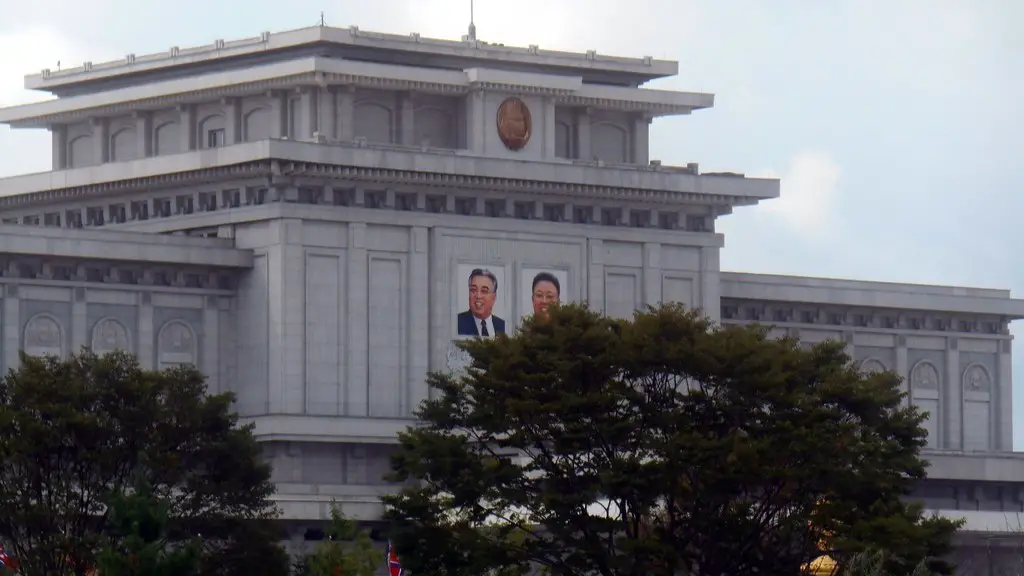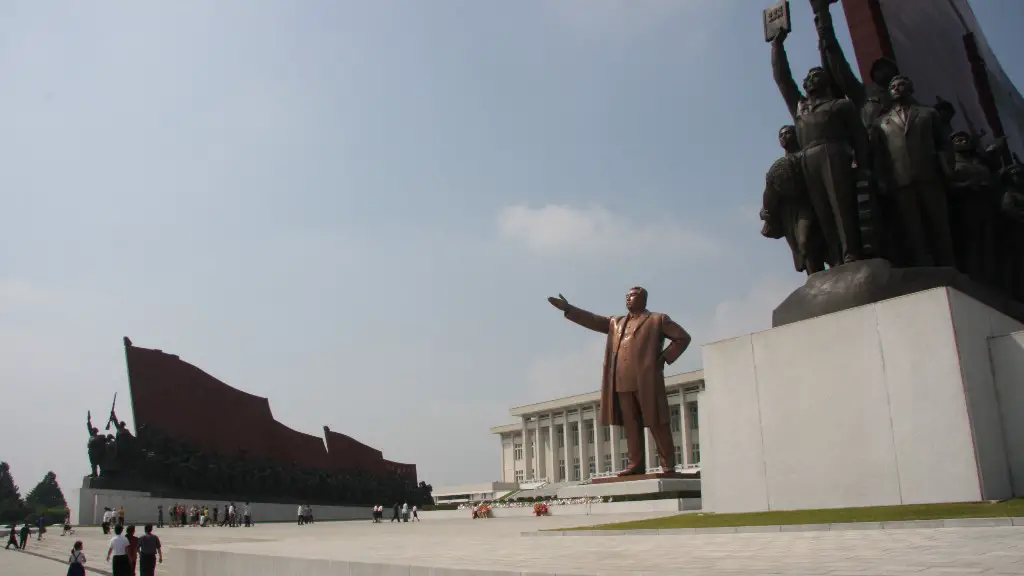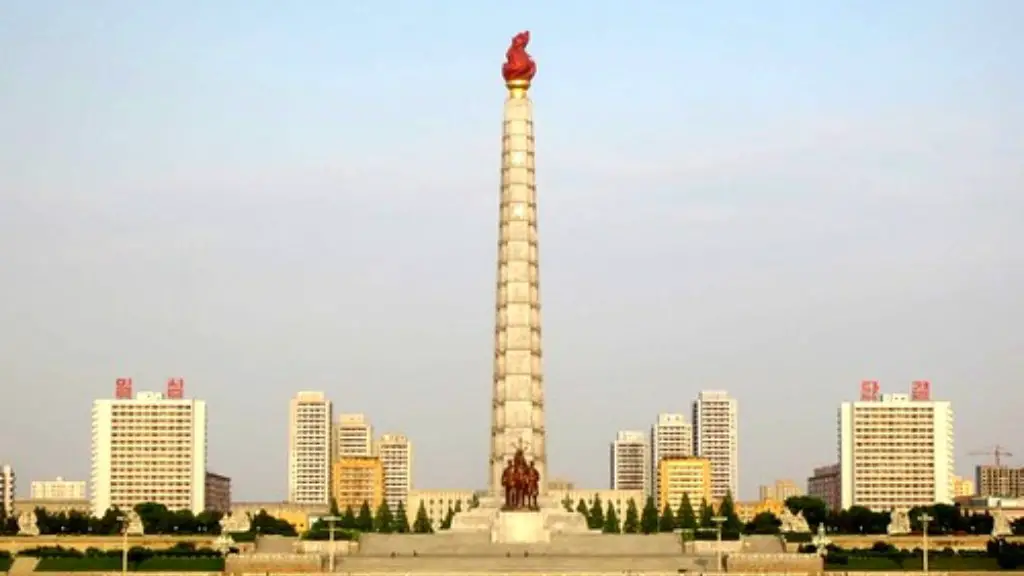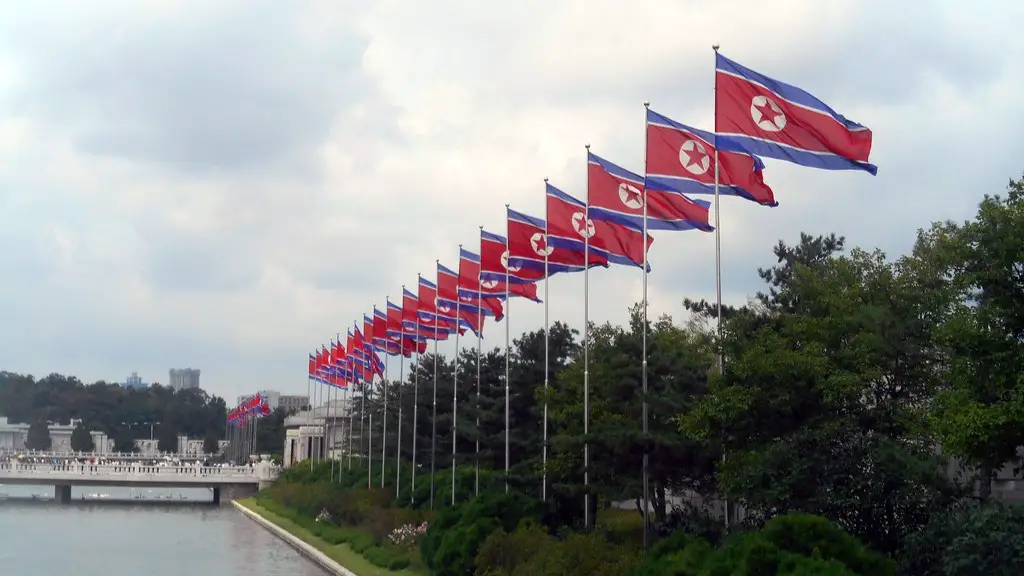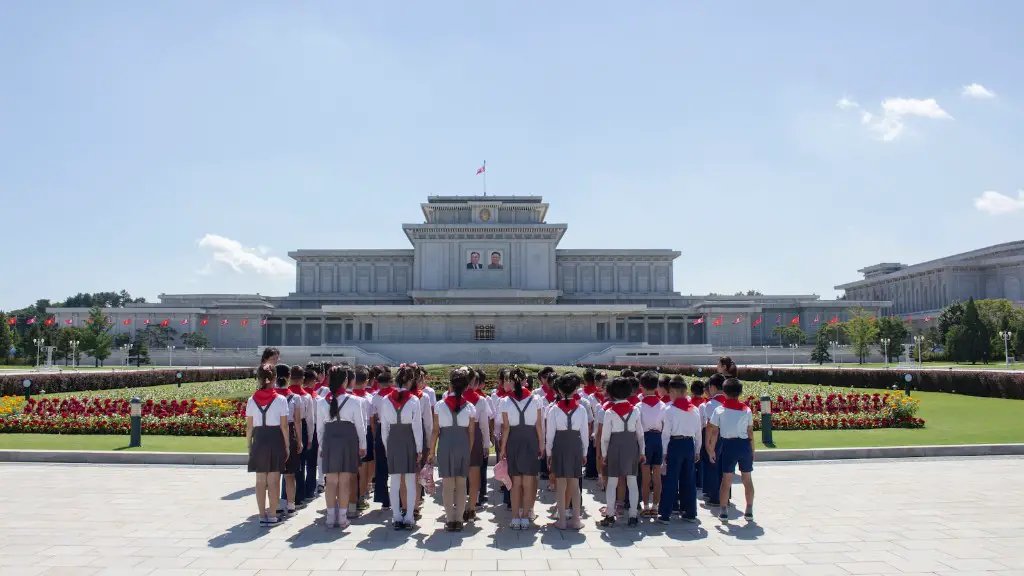From the outside looking in, you would think North Korea is a nation of wealth and power. Its leader Kim Jong-un has been painting the picture of a powerful, prosperous and successful nation. However, this rosy picture could not be further from the truth. North Korea is one of the poorest countries in the world and its citizens are facing extreme levels of poverty.
The estimated national Gross Domestic Product (GDP) for North Korea in 2018 was just $22 billion and its GDP per capita just $1,300. This puts North Korea at the bottom of the list of the richest countries in the world. Additionally, the United Nations Development Program (UNDP) estimated that 12 million people, over half of North Korea’s population were at or below the poverty line in 2018.
Experts attribute much of the poverty to the country’s inefficient, centrally planned economic system and its centralized control of resources. Decades of bad economic policies and dysfunctional governmental systems have resulted in inefficient allocation of resources and failure to respond to the needs of its citizens. Additionally, the country has not been able to take advantage of the opportunities in the global economy and has instead relied on the out of date practices of a centrally planned economy.
The disproportionate distribution of resources has also been cited as a major contributor to poverty. Despite approximately $1 billion in aid from other countries, the North Korean government has failed to adequately distribute the resources to its citizens, leaving the majority of North Koreans to fend for themselves. This is especially true in rural areas, where the majority of the population lives in extreme poverty, with over 80 percent of the citizens living below the poverty line, according to the UNDP.
The lack of access to basic needs, like food, water and medical care is a major factor in the poverty of North Korea. A UN report from 2018 states that in 2018 10 million North Koreans were food insecure, meaning that they lacked access to adequate nutrition. This food insecurity has led to malnutrition, as well as increased mortality rates, especially in children. Additionally, access to clean water and effective medical care is severely limited, leading to higher rates of diseases and low life expectancy.
The poverty situation in North Korea is made worse by its isolation from the rest of the world and its oppressive government. The government has imposed severe restrictions on citizens’ freedoms and actively suppresses any kind of dissent, opposition or criticism. Additionally, international sanctions have placed a greater financial strain on the country and it is estimated that over 6 million people are in need of assistance due to the sanctions. These policies have resulted in an oppressive and dismal life for the majority of North Koreans.
Consequences of Poverty in North Korea
The effects of poverty on North Korea’s population are far-reaching and devastating. Poor households are more likely to have malnourished and ill-educated children, leading to generational poverty and perpetuating the cycle of poverty. Additionally, the limited access to education, healthcare and employment opportunities leads to a lack of development, both socially and economically.
Furthermore, poverty increases the risk of exploitation and human trafficking. North Koreans who find themselves in poverty are often forced to leave the country in desperate search of a better life. Many of these people are lured into exploitation, forced labor and even prostitution in a foreign land. This not only creates a sense of hopelessness and despair among the North Korean population, but also increases the risk of instability in the region.
International Aid
In response to the humanitarian crisis in North Korea, the international community has provided different forms of aid over the years. In 2018 alone, the United Nations drew up a response plan to provide aid to 6 million of the most vulnerable citizens in need. This aid was distributed through World Food Program and other international agencies.
In addition to the UN aid, some countries, such as the United States, have provided economic assistance to the North Korean government in order to help finance infrastructure projects and support economic development. Additionally, there are a number of international non-profit organizations that are actively working to provide aid to North Korean citizens.
North Korean Government Response
The responses involved in addressing the poverty issue in North Korea have been met with significant resistance from the North Korean government. It has been observed that the government has taken repressive measures in order to stifle any kind of criticism or public dissent. Additionally, it has been alleged that the government has misappropriated much of the aid received from the international community. This has led to increased scrutiny from international organizations, who are calling for greater oversight and transparency.
Furthermore, the North Korean government has implemented policies aimed at curbing population growth. This has resulted in a drastic decline in the number of births being recorded in the country and has had detrimental effects on the population dynamics. This is highly concerning because it indicates that the government is actively trying to reduce the population, rather than addressing the root cause of poverty.
Potential Solutions
In order to address the issue of poverty in North Korea, there needs to be a unified international response that is focused on providing aid to the most vulnerable population. Resources should be primarily directed towards providing food, medical care and other basic necessities to those in need. Additionally, international aid should be used to foster economic development and create employment opportunities.
Moreover, the international community should focus on providing support to the North Korean government in order to facilitate change from within. This could include aiding the government in implementing economic reforms that are aimed at creating a more equitable, open and efficient market economy. Furthermore, it is important for the international community to provide support and training to North Korean citizens in order to create a skilled, educated and capable workforce.
Lastly, it is essential for the North Korean government to implement policies that are aimed at protecting the rights and freedoms of its citizens. This would go a long way in enabling the citizens to take advantage of the opportunities available and escape the cycle of poverty.
Improving Humanitarian Conditions
It is worth noting that in recent years, the humanitarian conditions in North Korea have improved significantly. This is largely attributed to the efforts of the international aid community and the North Korean government. For example, the United Nations estimates that the number of citizens living in poverty decreased from 12 million in 2018 to 8 million in 2020. Furthermore, there have been significant investments in infrastructure, healthcare, education and other human development initiatives.
It is important to note, however, that there is still much work to be done to improve the living conditions in North Korea. Aid needs to continue to be provided to those in need, and the North Korean government needs to ensure that this aid is adequately distributed. Additionally, it is essential for the North Korean government to focus on creating economic growth and creating employment opportunities.
Finally, it is important for the international community to continue to support North Korea by providing training, resources and opportunities for the country to engage in global markets. This will help to bring about lasting and sustainable change to the North Korean economy.
The Role of the North Korean Citizen
In order to truly address the root causes of poverty in North Korea, it is essential to empower the North Korean people. This can be done by providing training, education and access to resources. Additionally, it is important for the international community to provide support to grassroots efforts in North Korea that are focused on empowering citizens and encouraging community-based initiatives.
Furthermore, the North Korean people need to be more informed and educated about their rights and freedoms. This should include providing access to information and resources, as well as creating platforms for citizens to share their stories and experiences. Additionally, the people need to be made aware of the opportunities available to them in order to be able to take advantage of them.
Finally, it is essential for the North Korean citizens to be part of the solution and take responsibility for their own lives. This includes taking initiative to create their own sources of income, standing up for their rights and leading by example. This will go a long way towards creating a more equitable, prosperous and just society in North Korea.
Conclusion
The reality of poverty in North Korea is a stark reminder of the dire plight of its citizens. The international community has a responsibility to provide humanitarian aid to the North Korean people, in order to ensure that their basic needs are met. Additionally, it is essential for the North Korean government to implement policies that are aimed at creating economic growth and empowering its citizens.
Finally, it is up to the North Korean people to take responsibility for their lives and take part in creating a brighter future for their nation. Through the collective effort of the international community and the North Korean government, North Korea can emerge from the depths of poverty and experience lasting and sustainable change.
